
Latest Coronavirus Disease COVID 19 News and Research
A new tool to help biomedical scientists better understand COVID-19 virus
Biomedical scientists working with COVID-19 have a new tool to help them better understand the virus and feel confident about the structural models they are using in their research.
Could the next pandemic be 100 times worse than COVID-19?
As the world tries to cope with the severe acute respiratory syndrome coronavirus 2 (SARS-CoV-2) that causes coronavirus disease (COVID-19), Dr. Michael Herschel Greger has claimed that worse could be yet to come. The American nutrition expert has claimed in his latest book that the next pandemic could be due to virus emanating from poultry farms.
Researchers identify genetic codes of COVID-19 and SARS viruses that may promote their lifecycles
Researchers have identified specific portions of the genetic codes of the COVID-19 and SARS viruses that may promote the viruses' lifecycles. The new technique is researchers' first tool for determining what genetic sequences stored as RNA - DNA's chemical cousin - are more stable.
Hiring a diverse army to track COVID-19 amid reopening
As a contact tracer, Teresa Ayala-Castillo is sometimes asked whether herbal teas and Vicks VapoRub can treat COVID-19. These therapies aren't exactly official health guidance, but Ayala-Castillo isn't fazed. She listens and then suggests other ideas — like getting rest and drinking plenty of fluids.
Ciheb awarded $4 million to support COVID-19 response activities
The Center for International Health, Education and Biosecurity at the University of Maryland School of Medicine's Institute of Human Virology was awarded $4 million from the U.S. Centers for Disease Control and Prevention to support coronavirus disease 2019 (COVID-19) response activities in Botswana, Nigeria, Malawi, and Mozambique.
Pandemic presents new hurdles, and hope, for people struggling with addiction
Before Philadelphia shut down to slow the spread of the coronavirus, Ed had a routine: most mornings he would head to a nearby McDonald’s to brush his teeth, wash his face and — when he had the money — buy a cup of coffee.
Does interferon therapy work in COVID-19?
A new study published on the preprint site medRxiv in May 2020 reports on the efficacy of interferons in treating COVID-19. The research could help evaluate the place of such therapy in the management of this disease.
At-home finger prick COVID-19 antibody testing
The best way to estimate the actual prevalence of COVID-19 in the population is by antibody testing. A new study by scientists at Enable Biosciences and published on the preprint server medRxiv* in May 2020 reports the development of fast and sensitive antibody testing kits designed for at-home use. This could significantly boost the measurement of population prevalence of this infection and help understand whether it confers immunity to reinfection.
ISSCR 2020 Virtual Meeting to deliver comprehensive scientific education program
The International Society for Stem Cell Research has transformed its annual scientific meeting into a virtual experience, bringing the global stem cell community together to share knowledge, collaborate, and network.
A cytokine pattern that predicts adverse outcomes in COVID-19
A new study published on the preprint server medRxiv in May 2020 reports the discovery of a predictive pattern of cytokines in COVID-19 infection that could guide clinical management if validated.
Specific immune suppression leads to severe COVID-19 disease
A new study published online on the preprint server medRxiv in May 2020 reports that specific changes in the way the human immune system responds to COVID-19 determine whether the individual develops moderate or severe illness.
Lancet issues correction on paper than prompted WHO to suspend Hydroxychloroquine trial
The World Health Organization (WHO) suspended the hydroxychloroquine trial amid the coronavirus pandemic. The decision comes after the study findings published in The Lancet reported issues on the drug's efficacy and safety. Now, the journal has issued a correction on the figures reported in the study.
Study highlights the importance of research-based healthcare in Germany
The authors recommend a needs-based system focusing on patient well-being and quality assurance, rather than a primarily profit-oriented approach. It should appreciate all employees and integrate innovations as well as digital solutions.
SARS-CoV-2 started spreading in the United States in January, CDC says
The United States has reported the highest number of infections across the globe, with more than 1.81 million confirmed cases and at least 105,000 deaths. The magnitude of the novel coronavirus spread hints that the virus may have started earlier than previously thought.
COVID-19 has become less deadly in Italy, health expert says
Italy was one of the hardest-hit countries amid the coronavirus pandemic. Now, health experts say that the novel coronavirus is losing its potency and has become less deadly.
SARS-CoV-2 emergence could be due to genetic selection and recombination
Researchers have found that genetic selection and recombination could be behind the emergence of the severe acute respiratory syndrome coronavirus 2 (SARS-CoV-2) that leads to acute respiratory distress syndrome (ARDS) or COVID-19 disease. This research could explain COVID-19 pandemic and its emergence. The study titled, “Emergence of SARS-CoV-2 through recombination and strong purifying selection,” was published in the journal Science Advances.
Study maps novel coronavirus infection in cells of nasal cavity, airway and lungs
In a major scientific study published in the journal Cell, scientists at the UNC School of Medicine and the UNC Gillings School of Global Public Health have characterized the specific ways in which SARS-CoV-2 – the coronavirus that causes COVID-19 – infects the nasal cavity to a great degree – replicating specific cell types – and infects and replicates progressively less well in cells lower down the respiratory tract, including the lungs.
Crucial ingredient from University of Kansas included in authorized COVID-19 drug
When the Food and Drug Administration issued an emergency-use authorization for the investigational pharmaceutical remdesivir to treat COVID-19 on May 1, in part it was due to pioneering work performed by pharmaceutical chemists at the University of Kansas School of Pharmacy in 1990.
COVID-19 pandemic has worsened pre-existing mental health conditions
With over 6.26 million cases and 375,000 deaths in just five months, the COVID-19 pandemic has caused great fear and devastation in many parts of the world. Many studies show that, generally, there has been an accompanying increase in fear, anxiety, and depressive symptoms during this period. Now, a new study published on the online preprint server medRxiv in May 2020 shows that patients with a history of mental ill-health often underwent a worsening of their symptoms with the onset of the pandemic.
Study reveals how essential SARS-CoV-2 protein can be stabilized and scaled for production
A research group from the University of Texas in Austin described a high-yield production of a stabilized severe acute respiratory syndrome coronavirus 2 (SARS-CoV-2) spike protein (S-protein) that may accelerate the development of vaccines and diagnostic tests. This methodological 'tour de force' paper is currently available on the bioRxiv* preprint server.
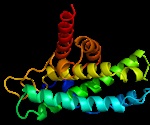

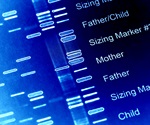

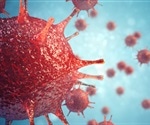


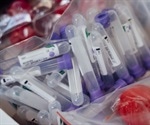
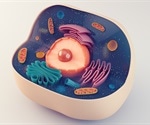
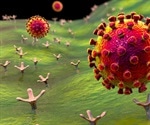
_24845aa3992b499a85b29d38ad373bf9-150x125.jpg)


_094454330da24b3194f608a4863d817a-150x125.jpg)
_4625a30e632b4f6db558f4bda51374a2-150x125.jpg)

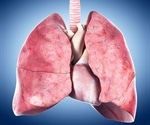
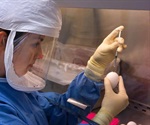
_791b49d424cd4ff5b4f386af90314997-150x125.jpg)
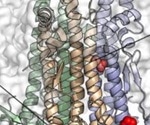





















.png)









No hay comentarios:
Publicar un comentario